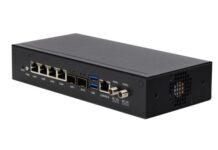Environmental, Social, and Governance (ESG) factors have become critical in evaluating a company’s impact on society, the environment, and its overall governance practices. In today’s business landscape, ESG considerations are pivotal in assessing a company’s sustainability and ethical stance. These factors reflect a company’s commitment to responsible business practices, encompassing issues such as climate change, resource management, social equity, diversity, data privacy, and ethical governance.
Cybersecurity has also emerged as a key component of the ESG agenda, with 67.4% of respondents from the US, Canada, Europe, and Asia ranking it as their top concern in a recent survey. This highlights the growing recognition of data protection and cybersecurity as an integral part of a company’s ESG strategy.
Rising Importance of ESG in Cybersecurity
India’s ESG landscape is marked by a strong focus on decarbonization and social impact. The country is making strides in its decarbonization efforts through regulatory mandates and technological advancements. For instance, the voluntary carbon market is maturing, and new regulations are setting clear targets and standards for decarbonization and carbon pricing. Moreover, 2024 is expected to be a pivotal year for integrating social impact and inclusive practices into core business strategies.
Cybersecurity threats are increasingly recognized as significant ESG issues, with the average cost of a data breach reaching $4 million in 2020, and potential damages from cybercrime expected to exceed EUR 10 trillion by 2025 (J.P. Morgan | Official Website) (Large Enterprises Industrial). This has led to cybersecurity becoming a highly valued factor in ESG issues.
Aligning ESG Principles with Cybersecurity Practices in India
ESG principles are making waves in India, fueled by fresh regulations from the Securities and Exchange Board of India (SEBI). The new Business Responsibility and Sustainability Reporting (BRSR) Core model mandates the top 250 listed companies to reveal their environmental impact, gender diversity, employee well-being, and more, starting from FY 2024-2025. This move is set to boost transparency and accountability, pushing businesses toward sustainable practices.
So, what happens when you mix ESG with cybersecurity? A recipe for success! Picture this: companies slashing their environmental footprint by opting for energy-efficient data centers and partnering with eco-friendly suppliers. It’s a win-win for the planet and the bottom line, especially when profitability and sustainability can go hand-in-hand.
On the social responsibility front, securing customer data and promoting diversity within cybersecurity teams aren’t just buzzwords—they’re game-changers. Diverse teams bring fresh perspectives, leading to more innovative and secure solutions.
Benefits of Aligning Cybersecurity with ESG
Aligning cybersecurity with ESG (Environmental, Social, and Governance) principles is a smart move that significantly boosts risk management. By identifying emerging risks, conducting comprehensive risk assessments, and ensuring compliance with evolving regulations, ESG factors help organizations stay ahead of the curve. This proactive approach addresses risks related to data privacy, supply chain resilience, and regulatory compliance, making for a more robust and ethical cybersecurity framework.
Take TCS, one of India’s IT giants, for example. TCS has seamlessly integrated ESG factors into its cybersecurity practices. Their data centers are not only energy-efficient but also adhere to the highest ethical standards in data handling. This strategy not only reduces environmental impact but also strengthens TCS’s cybersecurity stance, setting a benchmark for the industry.
Embracing ESG principles in cybersecurity isn’t just about tech—it’s about trust. When companies address cybersecurity as an ethical and social responsibility, they build stronger relationships with customers, investors, and other stakeholders. This approach showcases a commitment to ethical conduct and responsible practices, which is increasingly valued in today’s business world.
Infosys is a prime example of this alignment. By prioritizing data privacy and ethical governance, Infosys has built a reputation for integrity and reliability. Their commitment to ESG principles attracts investors and clients who prioritize sustainability and ethical conduct, further enhancing their market position.
Incorporating ESG principles into cybersecurity practices not only improves risk management and compliance but also fosters trust and transparency, ultimately enhancing a company’s reputation and attracting like-minded stakeholders. It’s a win-win for businesses and society alike.
Building a sustainable future
Integrating ESG principles with cybersecurity practices is not only beneficial for protecting digital assets but also aligns with broader societal and environmental goals. By adopting this approach, organizations can enhance their risk management, build trust with stakeholders, and achieve financial benefits, all while contributing to a sustainable future.
As we look forward, companies that embrace this holistic approach will be well-positioned to lead in an increasingly complex and interconnected world.

















